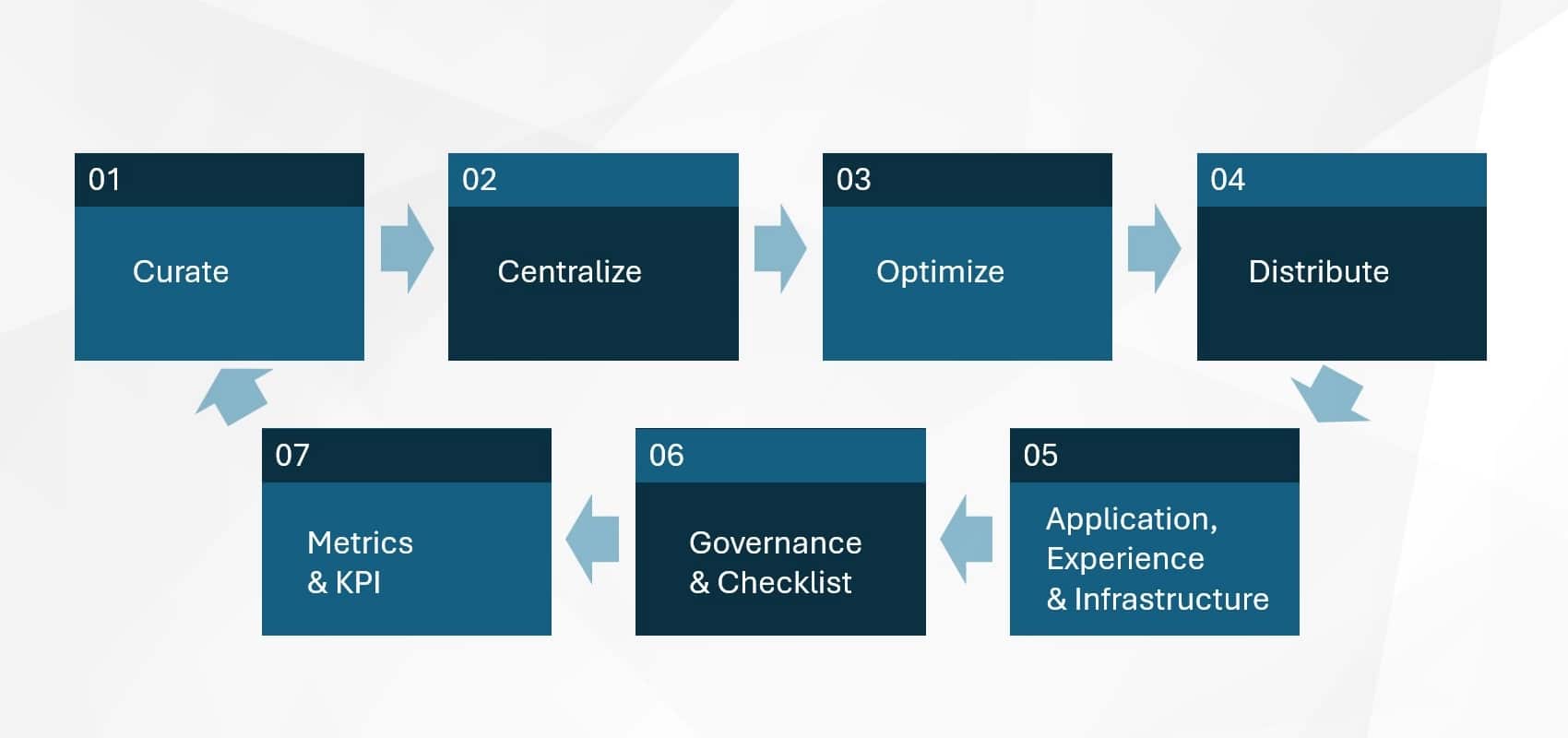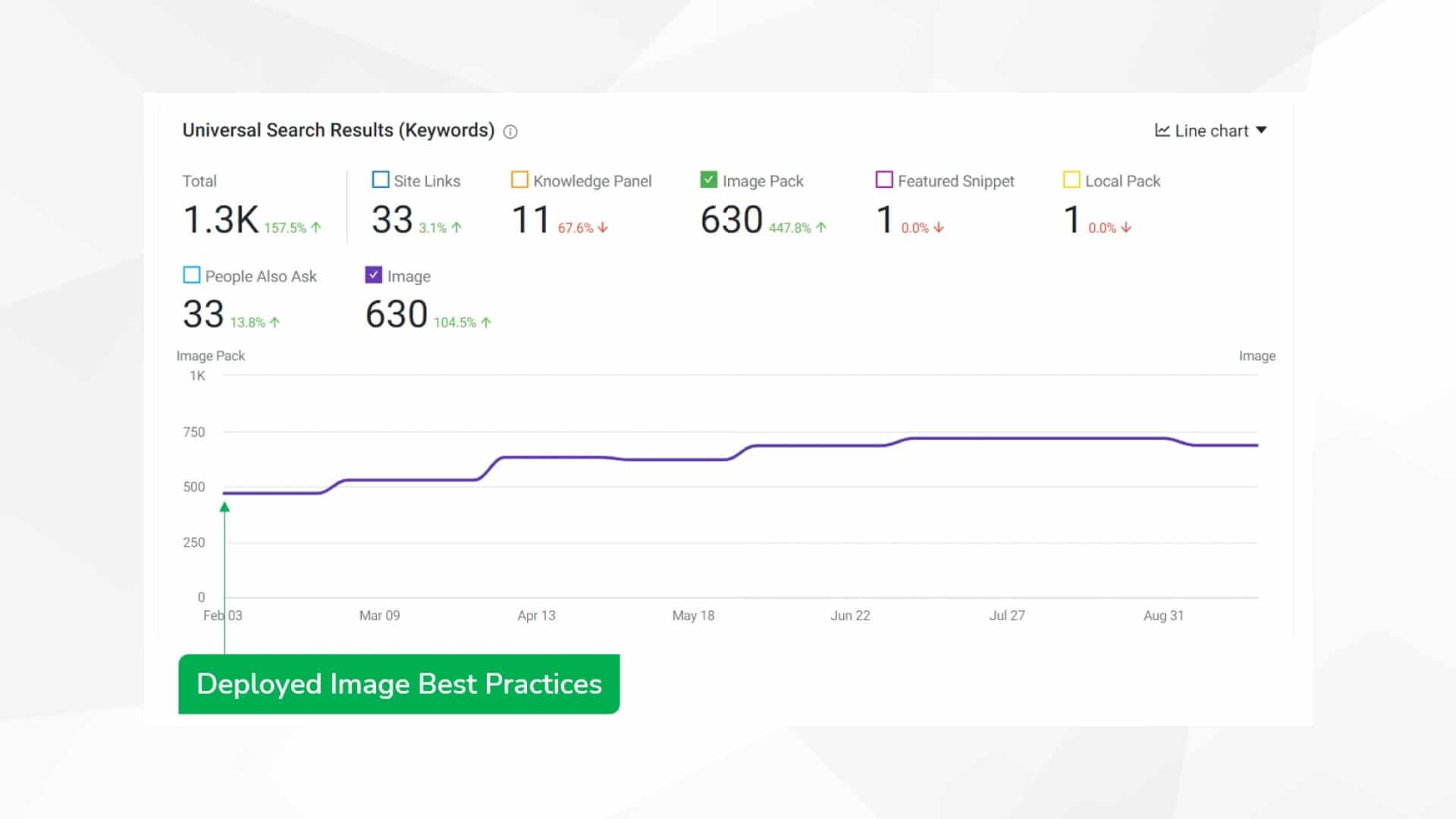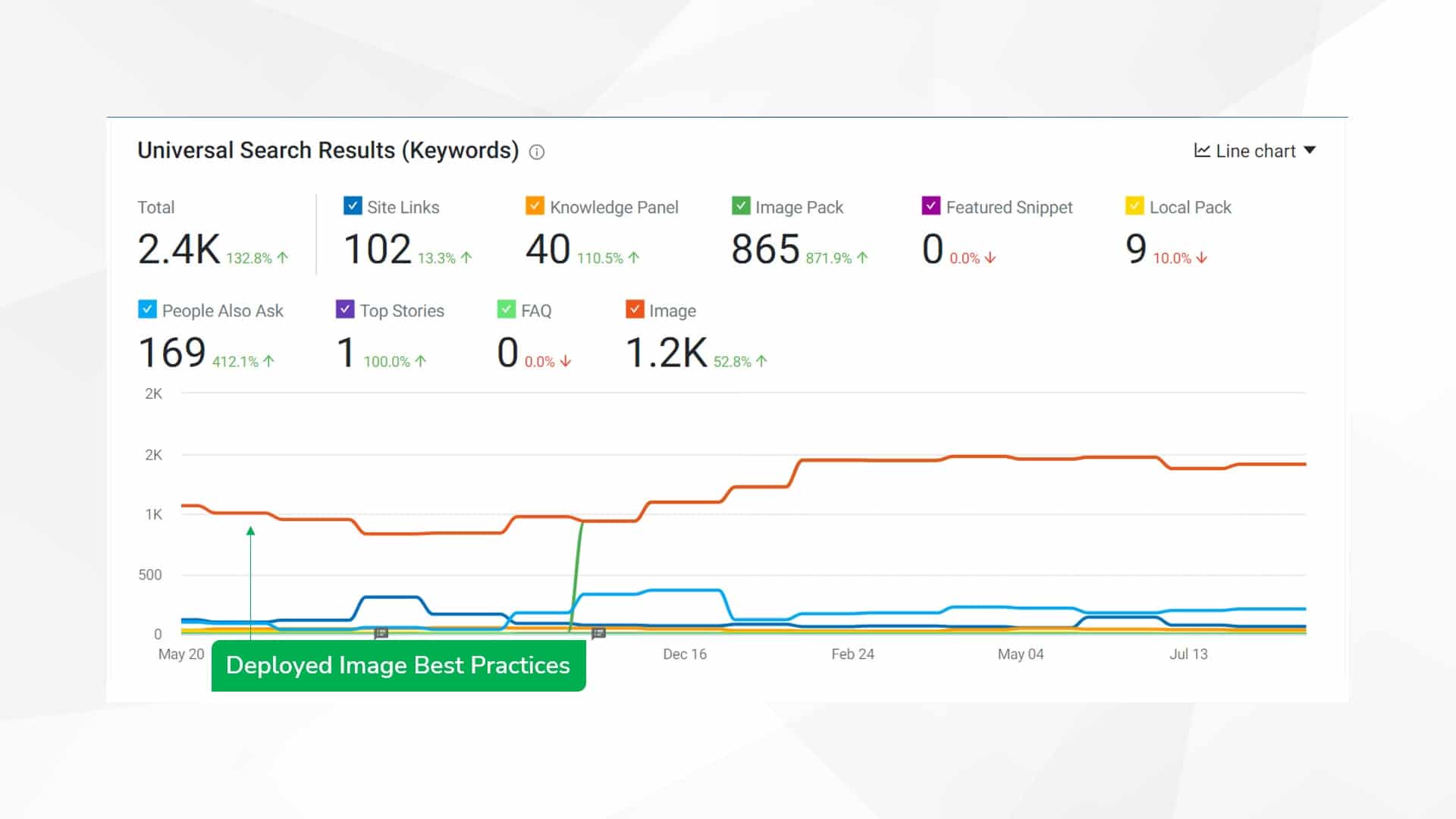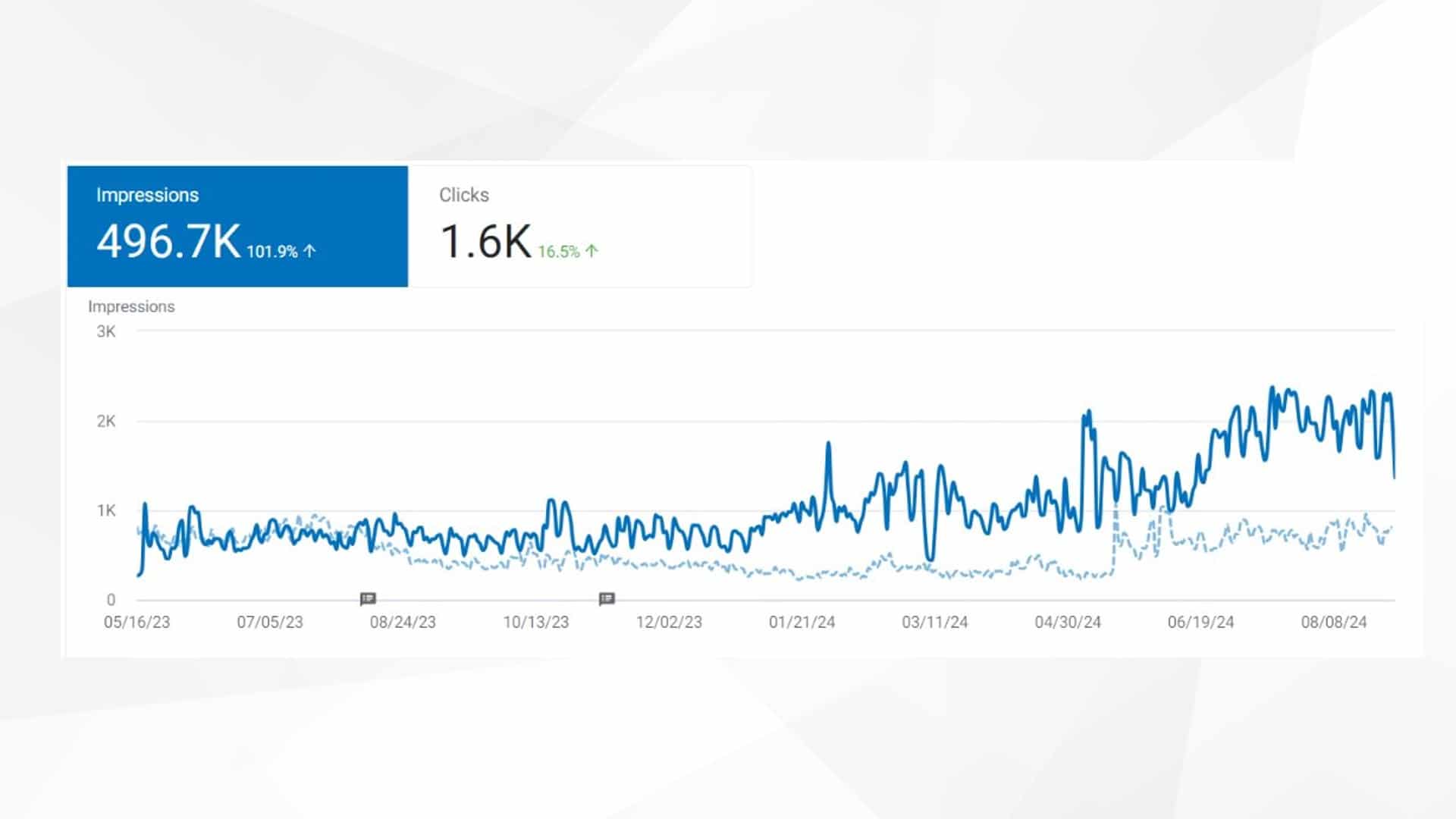
Many businesses are finding their digital marketing efforts falling flat despite producing content regularly. The culprit?
An outdated approach that neglects the growing importance of visual content in SEO.
With tech giants like Google and Apple prioritizing AI-powered visual search, companies that don’t adapt risk losing visibility and relevance.
Many enterprises lack the centralized strategies and governance needed to effectively manage visual assets across departments.
This article outlines a seven-step process to futureproof your visual content and SEO for 2025.
By implementing these strategies, you can leverage the latest trends, optimize for AI-powered search and significantly boost your online presence and engagement.
How are major giants pivoting features to embrace visual search?
Google is now integrating video and image content, primarily from YouTube, websites and third-party sites, into the Top Insights section of product and AI-generated search results pages.
This change provides users a richer, more engaging experience by offering a diverse range of information beyond text-based results and reviews.
It also allows brands to leverage image and video content to boost visibility and engagement.
Similarly, Apple has released Visual Intelligence with Vision 3, offering new features such as image segmentation and object detection.
These new capabilities allow developers to build more sophisticated and powerful applications that utilize visual information.
Why are visual content and SEO challenging for enterprises and SMEs?
The biggest challenges in visual content and SEO include a lack of centralization, inconsistent policies, governance and knowledge across departments.
Search is multimodal, meaning content creation should focus on customer intent, considering images, videos, PDFs and all other touchpoints and channels.
It is evolving beyond text to include diverse visual content. This shift requires a customer-centric approach that prioritizes intent and experience. Many companies struggle with implementing consistent best practices for visual assets across departments.
With the rise of AI-powered search, it becomes even more critical to centralize all visual assets, ensure they are optimized and consistently distribute them across all channels.
Dig deeper: Visual optimization must-haves for AI-powered search
Top trends in visual content and SEO

Featured images and interactive short-form videos
- These elements are critical for enhancing user experience, as consumers are seeking app-like interactions.
- Platforms such as TikTok and Instagram Reels have popularized short, engaging videos, making them essential for reaching audiences.
- Overall, video content helps in engagement and improve conversions and saturating SERPs.
Personalization
- Tailoring experiences based on audience, journey, demographics, location and intent is vital for brands to succeed.
Mobile dominance
- Since most images and videos are consumed on mobile devices, it is crucial to ensure that your UI, UX and assets are optimized for mobile.
In-video interaction
- Brands are exploring interactive video formats that allow viewers to choose their own path or engage in features like a 360-degree view and zooming.
- Incorporating polls and quizzes can create a more immersive and engaging experience.
7-step process to futureproof your visual content and SEO in 2025

Well-chosen featured images or videos significantly boost a website’s click-through rate (CTR) and encourage user engagement.
It is important to follow best practices such as image relevance to content, high quality, appropriate file size and format and mobile optimization.
1. Curate
Compile a list of all channels, vendors, departments and touchpoints where visual content is created and consumed.
2. Centralize
Establish policies to organize your content. Ensure all images and videos reside in a digital asset management (DAM) system and are accessible via a content delivery network (CDN).
All channels should access images directly from the DAM, avoiding multiple copies of the same image or video sitting in file folders.
3. Optimize
Use high-quality, relevant images with appropriate file formats, image tags, sitemaps and structured data to enhance discovery and visibility.
Leverage Google NLP to check for content marked as inappropriate and prioritize images relevant to the search query.
Ensure visual content doesn’t affect site speed by using next-gen image formats and implementing lazy loading.
4. Distribute
Ensure content is consumed from one central location. Use cloud infrastructure and a CDN to host and distribute your assets efficiently.
5. Application, experience and infrastructure
Leverage entity search to gain a competitive edge by implementing a clear visual hierarchy and enhancing content scannability.
Well-structured, topical pages with relevant images and videos perform better. Develop snackable videos for your unique selling proposition (USP) and customer reviews.
Create content suitable for visual snippets, such as how-to guides and recipes. The goal is to optimize for Google’s multisearch feature, which combines image, video and text searches.
Infrastructure is one of the biggest gaps most businesses face.
Most DAM systems are designed only to store images and lack the capability to optimize them easily.
Having a DAM that provides real-time scoring of your asset quality and connects seamlessly with your websites and other channels is essential.
Dig deeper: Future-proofing digital experience in AI-first semantic search
6. Governance and checklist
Establish robust governance and checklists around quality, consistency and usage across all departments.
Continuously test which images are performing well in SERPs and conversions to refine your checklist.
7. Metrics and KPIs
Develop metrics to track SERP and rich snippet saturation, presence in AI overviews, overall click-through rates (CTR), clicks from visual search, engagement rates and page bounce rates.
As Google and other search engines incorporate conversational AI, short videos, images, and social media posts into search results – shifting away from traditional website listings – these strategies will help you effectively use visual content in 2025.
Success stories
Using the seven-step process as mentioned above, our clients were able to drive phenomenal success for their images on search.
A popular hotel in Georgetown saw a 104% increase in the number of times images appeared in search results versus the previous period.
Search results appearances lift:

A Massachusetts Resort and Spa saw a staggering lift in its visual search performance:
- + 871% increase in the number of times images appeared in search results versus the previous period.
- + 101% increase in overall image impressions versus the previous period.
Search results appearances lift:

Impressions lift:

Dominate visual search with well-optimized images and videos
Video and images are powerful tools for enhancing SEO and boosting online visibility. As LLMs become increasingly skilled at understanding and generating both text and visuals, you must prepare for more integrated visual-textual content creation and optimization strategies.
By prioritizing these areas, you can stay ahead of the curve in visual content and SEO for 2025. Embracing the latest technologies and features released by major tech companies will enable you to enhance your online presence and improve searchability.
source https://searchengineland.com/visual-content-seo-images-videos-447306


0 Comments